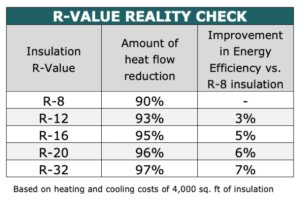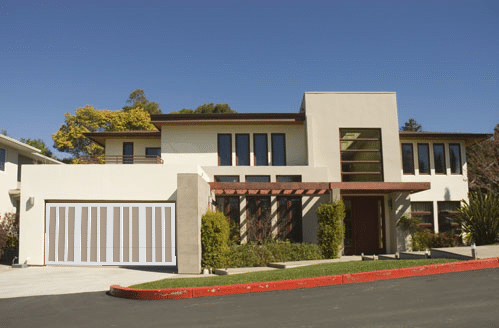
Garage Door Insulation
Are you in the market for a new garage door or looking to make your garage more comfortable? If so, you might have a few questions about garage door insulation. Read below for our thoughts on a handful of common insulating questions.
To summarize, garage door insulation improves the efficiency and comfort of your garage. Whether it’s a need or a want depends on how you use your garage.
Do wood garage doors need insulation?
Wood garage doors aren’t very good conductors, so they don’t get hot/cold to the touch like steel. The wood used to build garage doors is thicker than even the thickest steel. This means most wood garage doors deliver decent R-Value with no insulation. Yet, Amarr and Clopay wood garage doors include insulation and can deliver R-Values of 14+.
What R-Value should my garage insulation have?
- Detached Garages: 0 – 6
- Attached Garages: 7 – 9
- HVAC Controlled Garages: 10 – 13
- Garages with Rooms Above: 14 +
Why not insulate my garage door?
What does R-Value mean?

What are the types of garage door insulation?
Polystyrene and polyurethane are the most common insulation used in new garage doors. Garage door builders cut and place Polystyrene into the voids between layers of the doors. Polyurethane insulation, a liquid injected between layers, finds voids and fills them which eliminates pockets of air and inefficiency. Polyurethane performs better and insulates twice as well as polystyrene.
Please contact us with questions. Our team of experts is standing by to help with your garage door needs across Southern California.



